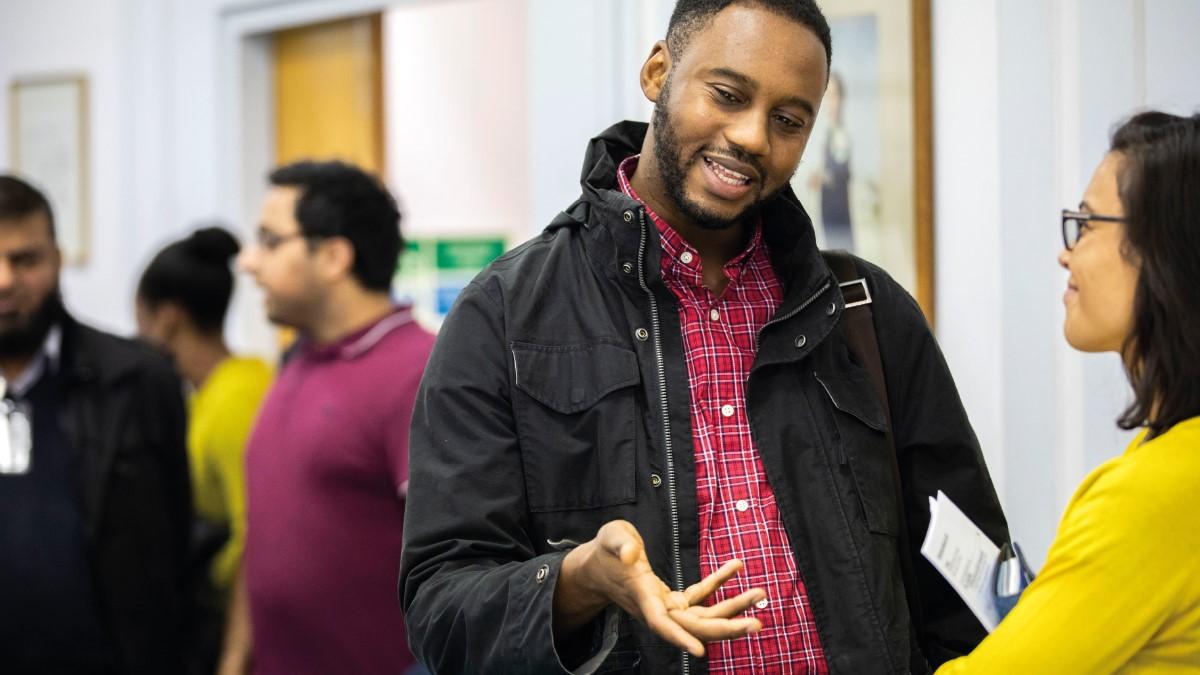Physio Heena Mahmood talks about her involvement with the BAME network

Heena trained at Leeds Beckett University, before working in a variety of areas including burns, acute medical, step-down rehabilitation and neurorehab. She currently works as a clinical change manager at Mid Yorkshire Hospitals NHS Trust.
‘My first choice of career was Law, for my love of debating. But I felt this wouldn’t offer the opportunities I was looking for, so I opted for a career in healthcare, which has taught me skills like communication, influencing, problem solving and critical thinking.’
Heena has been involved with her trust’s board and the BAME network for the past 12 months, and this has given her a greater understanding of NHS England, trade unions and Workforce Race Equality Standards.
We talked to Heena about her involvement with the CSP BAME network and the work to support BAME colleagues within her trust.
Heena acknowledges that the CSP BAME network is a great space to bounce ideas around with people across the country:
‘Network members are always there to discuss things, especially with the impact of Covid-19 and the George Floyd protests. The group has been a really good source of support, advice and inspiration.’
Speaking about her professional work, Heena says: ‘I’ve always been consciously aware of being a minority in every team. Representation really does make a difference and you begin to question why people who look like you are so underrepresented. It’s a variety of factors, including institutional racism, unconscious bias and not always having or knowing how to access opportunities.’
She remembers a colleague describing the overt racism they were subjected to by patients, who would call them derogatory and racist names, declaring they did not want to be treated by someone of colour. With their consent, Heena raised the issue on her colleague’s behalf, engaging at a wider level in the trust.
‘Our chief exec is incredibly supportive in understanding race equality and, over the last 12 months, the efforts have been phenomenal,’ she says. ‘The hard work and dedication shown in proactively addressing the complex issue of race has served as an inspiration of how we should all work to improve race equality in the NHS.’
During the Covid-19 pandemic the trust’s therapies leadership have held focus groups for BAME colleagues, to share experiences and ideas about how they can be better supported due to the disproportionate impact of Covid-19 on the BAME population.
And Heena says: ‘Other organisations would benefit from following suit in order to truly provide BAME colleagues with the support required in current challenging times.’
Earlier this year, a trust board race seminar was held. Black and Asian leaders were invited to discuss race equality in the NHS. BAME colleagues were able to tell their stories of working in the trust, and the seminar resulted in an action plan on how the trust will improve race equality.
Heena admits: ‘When we first started this work I was a bit nervous, as it can be a difficult topic to talk about. However one of my mentors said “you will never discover new oceans until you develop the courage to lose sight of the shore”.
‘Structural racism does unfortunately exist in the NHS and the trust recognises this by acknowledging the invisible barriers that people of colour face.’
Heena thinks the biggest challenge now is filtering this down to every level so that the race topic is normalised in everyday conversations.
‘Race equality is not just the work of people of colour, it is the responsibility of every person and every leader,’ she says. ‘Since the killing of George Floyd in the US, literature and research have been so widely available on race, inequality and more importantly, what we can all do about it.’
She believes that, by talking and having conversations about race, issues can be brought to light, which can lead to fresh thinking and a deeper level of understanding.
Going forward, Heena would like to see a few key changes for BAME colleagues working in the NHS: better representation at leadership levels, robust policies and guidance that removes institutional racism, and a level of trust enabling managers and employees to gain a greater understanding on the role we all play in tackling race inequality.
If you are interested in any of the work discussed please email: Heenamahmood@nhs.net
Get involved
The BAME network is the largest of the CSP diversity networks, with 742 members. If you are a CSP member and identify as Black, Asian or Minority Ethnic you can join the BAME network. More than 40 new members joined in the first half of June alone.
The network holds an away day, as well as taking part in a joint network day, both held annually, covering a range of topics, informed by network members. Network members have an opportunity to attend TUC Black Workers Conference each year, with a further opportunity to write and submit motions.
New BAME network members said: ‘I joined the network as I wanted to connect with physios from BAME backgrounds. As a student, I am one of only five from a BAME heritage out of over 50 students. I now feel I have a network who can understand what being from a BAME background meant in the physio world and I could connect and not feel isolated anymore.’
‘I had become desensitised to being the only BAME person on committees and boardrooms.
I was inspired to join the network by another member and also to help influence Covid-19 guidance. I have seen a vibrant collection shaping employment conditions to improve career opportunities to make Physiotherapy more attractive to young BAME people.’
For more information visit the BAME network
- Sian Caulfield is the CSP’s national officer for equality and diversity
Number of subscribers: 1





































